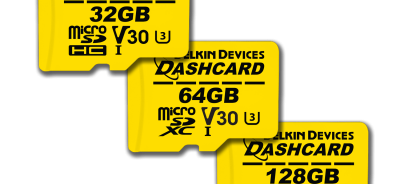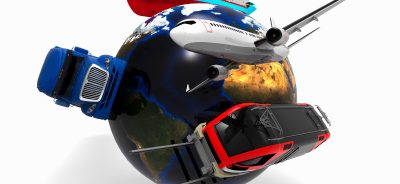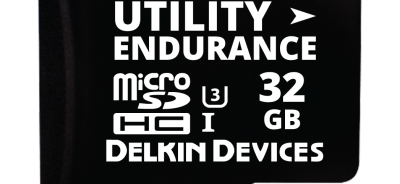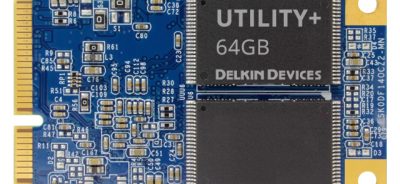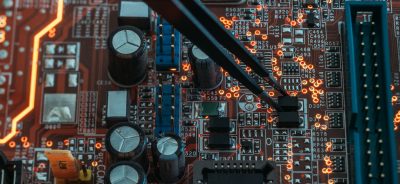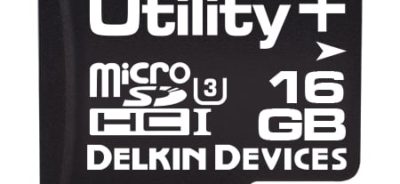The Industrial NAND Flash Based SSD Used in the Industrial Internet of Things (IIoT)
This post will describe the use and proper design of Industrial Grade NAND Flash SSDs in the Industrial Internet of Things (IIoT).
What is IIoT?
IoT is the remote networking of devices communicating and transferring data (and storing data in the cloud) to accomplish specific tasks. Examples might be appliances, entertainment media (TV,Video Disk Players, Network Music Streamers) devices with internet connections that allow exchange of data, such as connections to the manufacturer’s server, for maintenance, remote diagnostics and Firmware updates.
The industrial internet of things, or IIoT, is the use of internet of things (IoT) technologies to enhance manufacturing and industrial processes.
Also known as the industrial interindustry 4.0, IIoT incorporates machine learning to harness the sensor data, machine-to-machine communication and automation technologies that have existed in industrial settings for years.
Data Storage In IIoT Devices
All IIoT connected devices require some sort of data storage, and in most cases this would be Flash based, in particular NAND Flash. The industrial environment can involve many challenges, such as large temperature and humidity swings, airborne contamination, shock and vibration and more. Therefore, mechanical drives are not suitable for use in these devices. Nor are commercial grade storage devices suitable for use.
Industrial Device Examples
Let’s consider data logging in a couple of instances. Tractor trailers typically now contain embedded systems, with data storage capabilities. The Data stored may include health status of the trucks mechanicals as well as routing information and even video as the truck is driven. Being connected to the internet, this data can be remotely polled.
Cars now have the ability to data log operational parameters via the On-Board Diagnostics (ODB) port. Intelligent devices can be plugged into the port to monitor speed, fuel consumption, engine fault codes, emergency breaking and accidents. This data can be used to communicate mechanical faults or service data to the dealer or even a data collection center linked to repair shops to help with car service. Auto insurance companies are offering devices that monitor and log your driving habits. With this data insurance companies can determine if the driver is likely to cost them money in claims or is eligible for a discount.
Medical equipment located remotely from a surgeon/doctor is another example. Surgery and its related data logging and communication from man to robot is a miracle in the making. Specialized surgeons no longer have to travel across the world to save lives. Having said that, the devices involved must be robust, withstand temperature extremes and other possible rough environmental conditions, including power failures.
Definition of Industrial Environmental Ambient Conditions
Most devices are manufactured in several temperature grades. Broadly accepted grades are:
- Commercial: 0° to +70°C
- Industrial: −40° to +85°C
- Military: −55° to +125°C
Nevertheless, each manufacturer defines their own temperature grades, so designers must pay close attention to actual data sheet specifications. For example, one semiconductor manufacturer uses five temperature grades for its products:
- Commercial: 0°C to +85°C
- Industrial: −40°C to +100°C
- Automotive: −40°C to +125°C
- Extended: −40°C to +125°C
- Military: −55°C to +125°C
It makes sense that for a final device to meet the standard to −40° to +85°C Industrial specification, its components would need to be rated equal to or better. This is why the expanded specification used for semiconductors produced by one manufacture makes the most sense.
Design Considerations for Industrial Grade SSDs
When semiconductor operating conditions are specified, the operating temperatures are ambient, that is the temperature at the surface of the component. Often times junction and case temperatures are supplied, and they can be used with supplied thermal resistance values to determine if junction temperatures will be exceeded with given ambient temperatures. This is especially useful when using industrial rated parts used to make an industrial rated device in an enclosure. In such cases, the temperature rise inside the enclosure must be taken into consideration.
If a device such as an SSD is to operate in ambient temperatures of +85C, the temperature in the enclosure of the SSD must not exceed this temperature. This is not an easy task, especially when heat intentional dissipation is taken to account. This can be handled by using higher grade parts such as military, or by thermal management. Military components can be more expensive compared to standard components and thermal management can be a challenge to implement.
The above is the most often missed or misunderstood item in the design of industrial grade SSDS, or for that matter, any industrial grade product.
As a product developer, I have witnessed an internal 15°C rise above ambient in a 2U 19” rack mount enclosure consuming 100 Watts. In this instance the product specification was operational to 70°C so the use of 85°C parts was okay. If this were not the case, added thermal management and/or military grade parts would need to have been used.
The point is, one must pay close attention to internal temperatures in the design of Industrial grade SSDs.
Conclusion
The IIoT is becoming more and more important in today’s advancing manufacturing operations and industrial product features. Although not all IIoT devices must meet Industrial environmental specifications, the bulk of them do. Careful attention to internal component temperatures is critical. It’s not enough just to place industrial grade parts on an SSD board and expect all to be fine. Extensive probing of internal enclosure temperatures at multiple points is required to ensure that no component is subject to temperatures above their rating. In addition to temperature there are other factors that can impact component performance, such as humidity, pressure, shock and vibration.
Let Delkin’s customer support team is here to help you select the best storage solution to maximize the performance of your device. Contact us today for assistance.
 Login
Login Register
Register



